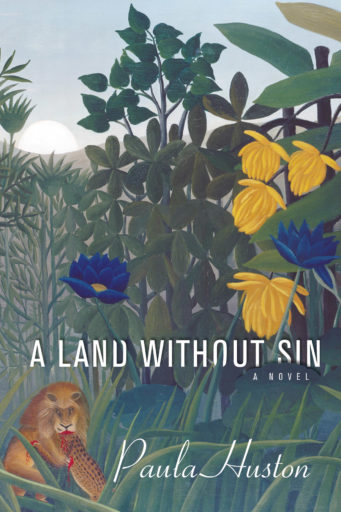

As A.G. Mojtabai’s Thirst opens, Lena has been summoned to the bedside of her ailing “brother” Theo, an aging country priest who has started to refuse food and drink. What Lena faces is complicated by the fact that she left the faith long ago.
| Hardcover | ISBN 9781639820887 | $25.00 |
| Paperback | ISBN 9781639820870 | $16.00 |
| eBook | ISBN 9781639820894 | $12.99 |
As A.G. Mojtabai’s Thirst opens, Lena has been summoned to the bedside of her ailing “brother” Theo, an aging country priest who has started to refuse food and drink. What Lena faces is complicated by the fact that she left the faith long ago.
First cousins and closest childhood friends, Theo and Lena were raised in a small Catholic farming community in Texas, named for the village their parents left behind in Germany, a place where all questions—asked and unasked—were answered for all time. The known world was bounded by the iron fence of the parish cemetery containing nearly all their dead. Beyond it, lurked disorder, the dragons of unbelief.
Now faced with the mysteries of mortality and loss, both are struggling to come to terms with the choices that have defined them.
Thirst is a book hard to classify—a novella, certainly, but it is also in part a tone poem, a contemporary book of hours, and a meditation engaging issues of faith and doubt, death and healing.
Roger Rosenblatt has said of A.G. Mojtabai: “It is rare to find a gorgeous stylist and a writer of substance yoked in the same artist. Her work shows heart and unsentimental kindness that leaves the reader enlightened and wiser.”
One of the most memorable works of fiction I’ve read in the last decade.
John Wilson, former editor, Books & Culture
I’m amazed at what Mojtabai’s done—so much so that I wished I’d written the book. Thirst will resonate with many who have lost a loved one and those with a terminal illness who are just learning how to die.
Ron Hansen, author of Hotly in the Pursuit of the Real
Spare, strange, and riveting, A. G. Mojtabai’s Thirst is disturbing and consoling in equal measure. Like all her fiction, this short, intense novel of lost faith and chosen death is as perfectly formed, intricate, and mysterious as a flower. It is a beautiful meditation.
Valerie Sayers, author of The Age of Infidelity and Other Stories
The spare radiance of Mojtabai’s Thirst illuminates a core of impenetrable obscurity. This beautifully written novella encompasses both the mundane and the mysterious, both the sparse outer details and the unreachable inwardness of the end of a life. To read Thirst is to experience clarity and obscurity, both evoked with dry wit and utter precision, as well as with the vividness of an elusive dream.
Rachel Hadas, author of Strange Relation
Scripture speaks of those who ‘hunger and thirst after righteousness,’ a phrase that takes on extra meaning during the Eucharist. To this spiritual theme Grace Mojtabai adds a less exalted sense for the title word, since the dying priest in this narrative becomes parched with a thirst that his sister tries to alleviate. Faced with harassments both physical and mental suffered by her brother, her ministering to them amounts to a sort of Eucharist as well. It’s a sacrifice not sanctioned by orders and ritual, but very much in keeping with the Comforter’s promise of support in times of trial. Mojtabai’s bell-clear prose demonstrates, with admirable economy, how the sacramental infuses ordinary daily life. I am grateful to have read in advance a book that is sure to attain the status of a classic.
Alfred Corn, author of Arks & Covenants